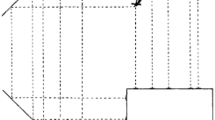Abstract
There has been an empiricist tradition in the core of Logical Positivism/Empiricism, starting with Moritz Schlick and ending in Herbert Feigl (via Hans Reichenbach), according to which the world of empiricism need not be a barren place devoid of all the explanatory entities posited by scientific theories. The aim of this paper is to articulate this tradition and to explore ways in which its key elements can find a place in the contemporary debate over scientific realism. It presents a way empiricism can go for scientific realism without metaphysical anxiety, by developing an indispensability argument for the adoption of the realist framework. This argument, unlike current realist arguments, has a pragmatic ring to it: there is no ultimate argument for the adoption of the realist framework.
Similar content being viewed by others
References
Alspector-Kelly M. (2001) On Quine on Carnap on ontology. Philosophical Studies 102: 93–122
Carnap, R. (1939). Foundations of logic and mathematics. In International Encyclopaedia of Unified Science (Vol. 1, No. 3). Chicago: The University of Chicago Press.
Carnap, R. (1950). Empiricism, semantics and ontology. Revue Intérnationale de Philosophie, 4, 20–40. (Reprinted in Meaning and necessity: A study in semantics and modal logic, 1956, Chicago: The University of Chicago Press.)
Carnap R. (1946) The two concepts of probability. Philosophy and Phenomenological Research 5: 513–532
Ghins M. (2001) Putnam’s no-miracle argument: A critique. In: Clarke S.P., Lyons T.D. (eds) Recent themes in the philosophy of science. Kluwer, Dordrecht
Feigl, H. (1943/1949). Logical empiricism. In D. D. Runes (Ed.), Twentieth century philosophy, New York: Philosophical Library. (Reprinted in Readings in philosophical analysis, by H. Feigl & W. Sellars, Eds., New York: Appleton-Century-Crofts, Inc.)
Maxwell, G. (1962). The ontological status of theoretical entities. In Minnesota studies in the philosophy of science (Vol. 3). Minneapolis: University of Minnesota Press.
Feigl H. (1950) Existential hypotheses: Realistic versus phenomenalistic interpretations. Philosophy of Science 17: 35–62
Psillos S. (1999) Scientific realism: How science tracks truth. Routledge, London
Psillos S. (2004) Tracking the real: Through thick and thin. The British Journal for the Philosophy of Science 55: 393–409
Psillos, S. (2010). On Reichenbach’s argument for realism. Synthese. doi:10.1007/s11229-009-9594-9.
Quine, W. V. O. (1951a). Carnap’s views on ontology. Philosophical Studies, 2, 65–72. (Reprinted in The ways of paradox and other essays, 1966, Cambridge, MA: Harvard University Press.)
Quine W. V. O. (1951b) Ontology and ideology. Philosophical Studies 2: 11–15
Quine W. V. O. (1960) Word and object. MIT Press, Cambridge, MA
Quine W. V. O. (1983) Ontology and ideology revisited. The Journal of Philosophy 80: 499–502
Reichenbach H. (1938) Experience and prediction. The University of Chicago Press, Chicago
Sellars, W. (1963). Science, perception and reality (Re-issued 1991). Atascadero, CA: Ridgeview Publishing Company.
Schlick, M. (1932). Positivismus und Realismus. Erkenntnis, 3, 1–31. (Translated as Positivism and realism. In A. J. Ayer (Ed.), Logical positivism, 1960, Glencoe, NY: Free Press.)
Author information
Authors and Affiliations
Corresponding author
Additional information
Earlier versions of this paper were presented at the Annual Conference of the British Society for the Philosophy of Science, Bristol, July 2007; the Centre for Logic and Philosophy of Science, University of Ghent, December 2007; and the Workshop ‘Theoretical Frameworks and Empirical Underdetermination, University of Düsseldorf, April 2008. A number of friends and colleagues have helped me with incisive comments and criticism; here is an incomplete list of them: Dirk Batens, Steven French, Michael Friedman, Michel Ghins, James Ladyman, Robert Nola, David Papineau, Juha Saatsi, Gerhard Schurz, Ioannis Votsis, Erik Weber and John Worrall. Many thanks to all (as well as to an anonymous referee for Synthese).
Rights and permissions
About this article
Cite this article
Psillos, S. Choosing the realist framework. Synthese 180, 301–316 (2011). https://doi.org/10.1007/s11229-009-9606-9
Received:
Revised:
Accepted:
Published:
Issue Date:
DOI: https://doi.org/10.1007/s11229-009-9606-9




